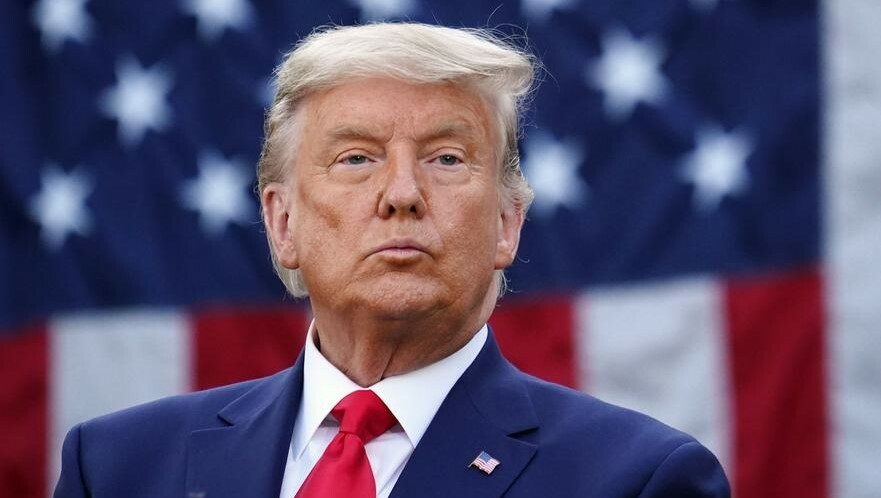US President Donald Trump begins his first foreign trip of his second administration this week with a tour of the Middle East, seeking to secure investment, trade, and technology deals from friendly, wealthy leaders amid turbulent negotiations over several regional conflicts, including Israel's genocidal war on starving and tightly blockaded Gaza.
According to experts, this Middle East tour is a repeat of his first international tour in 2017, when he was widely praised in the region as a serious leader seeking quick gains and capable of supporting the economic and geopolitical interests of the region's monarchies.
Trump's negotiations in Saudi Arabia, Qatar, and the United Arab Emirates are expected to focus on a number of topics, including oil, trade, investment deals, regional conflicts in Israel, Gaza, and Yemen, negotiations on the Iranian nuclear program, and other issues.
Trump typically pursues his own goals, but that could change next week when he confronts the chaos he is creating in the Middle East. As he begins his three-day tour of Saudi Arabia, the United Arab Emirates, and Qatar, the US president promises great results, but experts believe he is deluded, given that America's reckless, incoherent, and negligent regional policies are failing on all fronts.
Experts believe that Gulf leaders have significant leverage to correct Trump's course, should he decide to use it. He relies on them to an unprecedented degree—far more than he does on Europe—as diplomatic interlocutors, security partners, and financial backers, while "his approach to Palestine, which is facing a second Nakba, is a mixture of prejudice, cruelty, and sheer ignorance. Without Arab assistance, the United States and Israel could remain indefinitely stuck in a devastating political stalemate."
Experts believe Trump realizes he cannot ignore the views of Saudi Crown Prince Mohammed bin Salman and his Gulf counterparts on Gaza, Syria, and Yemen, and that they oppose war with Iran, as previously threatened by the United States and Israel. Trump needs them as allies in his trade and tariff dispute with China. Gulf diplomats also hosted peace talks between Ukraine and Russia, which he personally promoted. He is striving to keep oil prices low and covets billions of dollars in investment deals in the Middle East and arms sales.
Commenting on this issue, The Guardian newspaper says: “However, Gulf support comes at a price. Take, for example, Trump’s hope of extending the so-called Abraham Accords by normalizing Saudi-Israeli relations. Whatever Trump says, Mohammed bin Salman vows that this cannot happen without ensuring progress toward an independent Palestinian state—a prospect rejected by the Israeli government. Mohammed bin Salman has described the killing of more than 52,000 Palestinians in Gaza since October 7, 2023, as “genocide.” In Riyadh, he will therefore exert intense pressure to end the Israeli blockade and restore the ceasefire.”
US-Israeli relations are increasingly strained, with Trump so far refusing calls to include Israel in his itinerary, unconcerned by Benjamin Netanyahu and his far-right allies' plans for a prolonged military occupation of Gaza and the mass expulsion of Palestinians. However, while Trump was supportive two months ago, speaking of building a "Middle East Riviera," he appears to have belatedly realized that peace cannot be built on such illusory concepts.
Netanyahu, who continues to call for devastating US military strikes on Iran to destroy its nuclear program, was caught off guard by Trump's sudden announcement last month of talks with Tehran over its nuclear program. Trump's abrupt reversal last week, in which he ended US airstrikes on Yemen, also caught Israel by surprise, which continues to bomb Houthi fighters. Both policy shifts, and Trump's change in tone on Gaza, follow effective Gulf pressure, experts say.
According to experts, Arab leaders, with Turkey's support, want Trump to curb Israeli military operations in Lebanon, and particularly in Syria, which Israel has repeatedly attacked since the fall of Syrian President Bashar al-Assad's regime on December 8. All six members of the Gulf Cooperation Council support engagement with Syria's interim president, Ahmed al-Sharaa, and his coalition government.
It's worth noting that al-Sharaa (Abu Muhammad al-Julani) says he does not want a conflict with Israel and is focused on reuniting a shattered Syria. His visits to Saudi Arabia, the UAE, and Qatar have yielded generous offers of reconstruction aid. However, unlike Britain and the European Union, Trump has refused to ease sanctions imposed since the Assad era.
The Guardian commented on Sunday: “If Trump wants to secure Gulf support for his broader agenda, he will have to offer something significant in return. That might be reviving the 2015 US-EU nuclear deal with Iran (which he deliberately abandoned in 2018)—while ensuring that Netanyahu and the hardliners in Tehran don’t start another war. Trump might well make this a bold move. He claims to be the “peace president.” This is a chance to prove it.”
There is a growing understanding in Washington (and in Israel) that Trump has backed away from attempting to mediate Israel's war on Gaza. His administration has announced that it will negotiate a new aid distribution agreement without direct Israeli government intervention to renew aid deliveries to Gaza, which is suffering the worst humanitarian crisis since Netanyahu decided on March 18 to violate the ceasefire and resume the war of extermination on Gaza. However, the proposed US mechanism for aid distribution serves Netanyahu's plans to continue the war and occupy Gaza.



Share your opinion
Trump's ambitious Gulf visit could backfire due to his unwavering support for Israel.